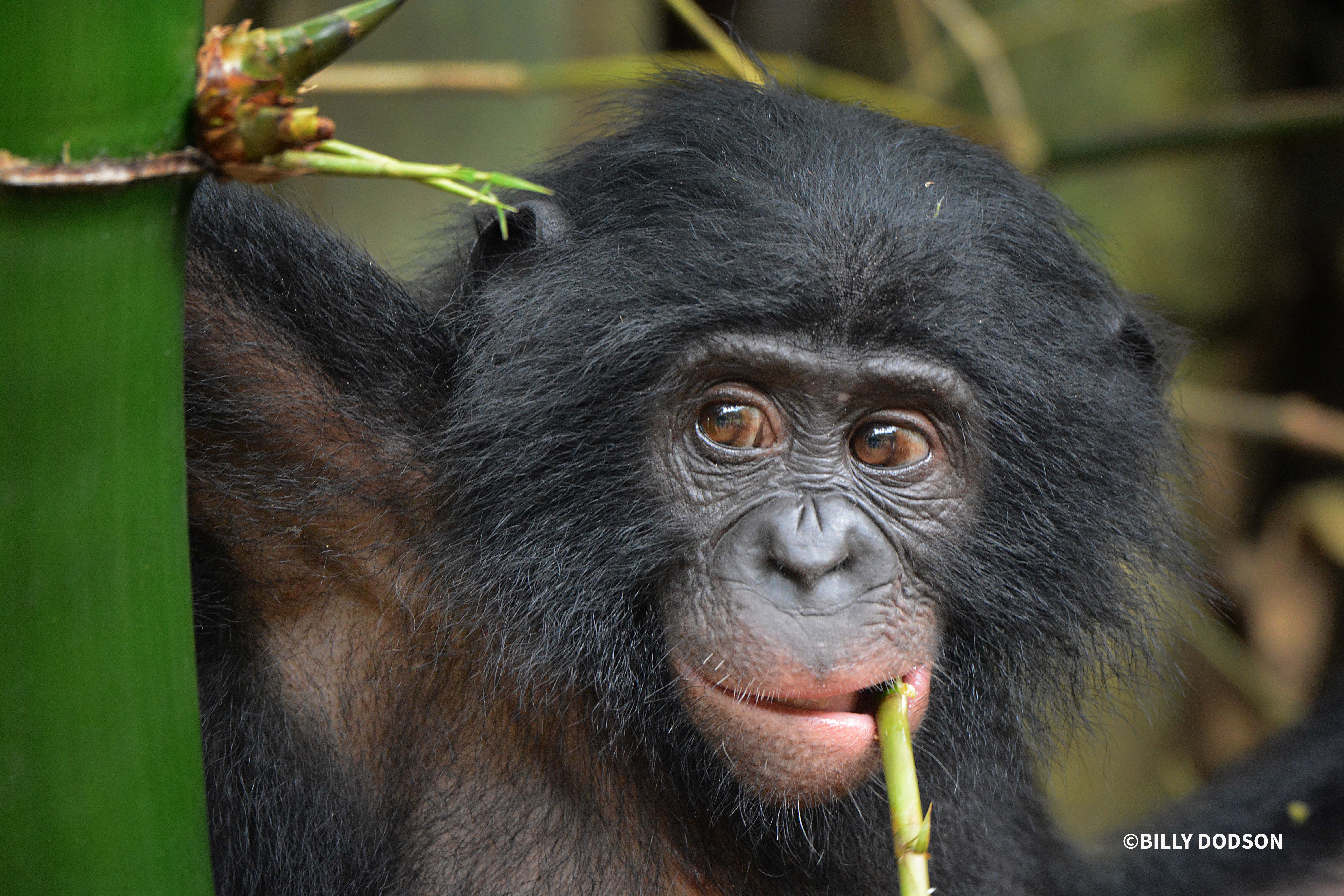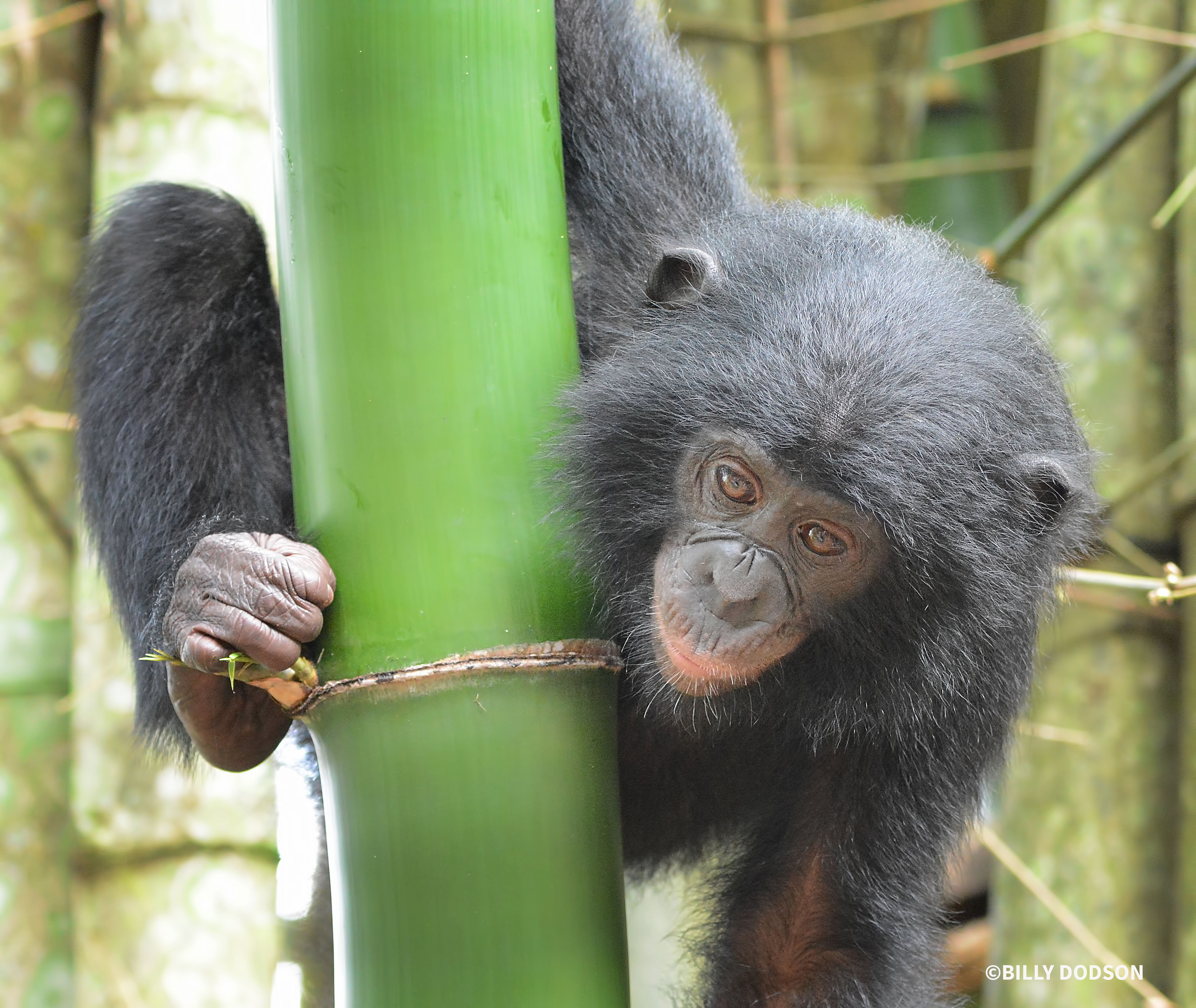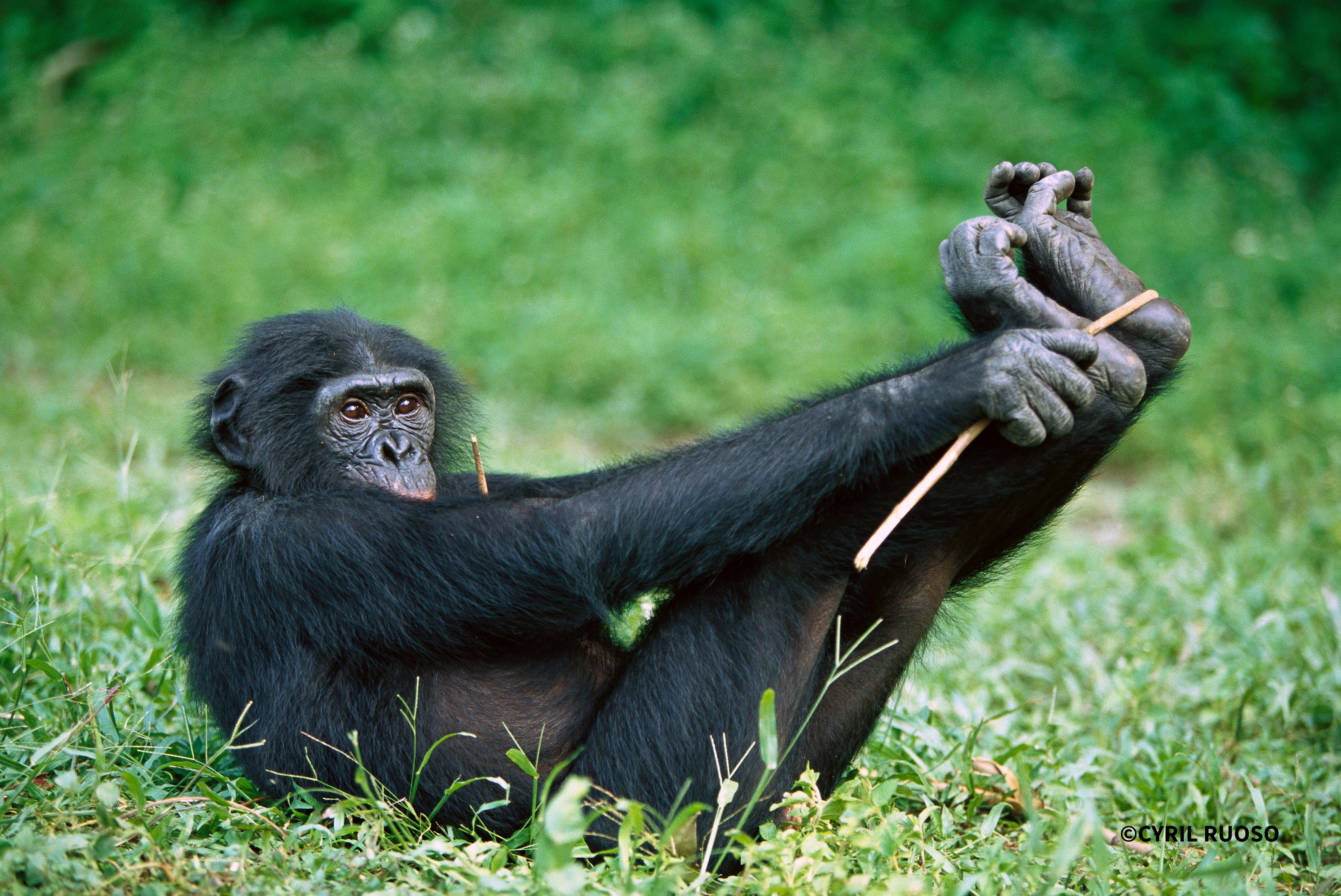World Bonobo Day: Protecting Our Closest Kin, the "Hippie Chimps"

February 14th isn't just about romance; it's also World Bonobo Day, highlighting the plight of these fascinating and endangered primates. Often called the "forgotten apes," bonobos share a remarkable 98.7% of our DNA, making them our closest living relatives.
But unlike their sometimes-aggressive chimp cousins, bonobos are known for their peaceful nature. Living in matriarchal societies, they famously use social grooming and even sex to manage conflict, ease tension, and even greet each other. This behavior aligns with humans, who also experience intimacy beyond reproduction, suggesting a deeper emotional connection. These gentle giants, nicknamed "hippie chimps," are truly the primates who make love, not war.

Facing Habitat Loss and Threats
Sadly, bonobos face a precarious future. Found only in the Democratic Republic of Congo (DRC), their habitat is fragmented and dwindling. Their slow reproductive cycle makes them vulnerable, with estimates suggesting only 10,000-20,000 individuals remain. Only 28% of their range remains suitable, and with deforestation rapidly increasing, their future hangs in the balance.
War, poverty, and illegal activities exacerbate their plight. Locals, struggling for protein, resort to hunting even endangered species like bonobos. Their large size makes them prime poacher targets, and the ongoing conflict fuels habitat destruction through logging and agriculture. Additionally, 99.2% of their range is suitable for palm oil production, posing a significant future threat.
Hope for Bonobos
Despite these challenges, the African Wildlife Foundation (AWF) and it local partners are working tirelessly to protect bonobos and their habitat. AWF employs a hands-on, community-driven approach, establishing two vital reserves in the DRC and training rangers to manage protected areas effectively. These efforts attract tourism, generate revenue, and create jobs for local communities.
Furthermore, AWF utilizes cutting-edge technology to identify crucial habitat areas and collaborate with communities to develop sustainable land-use plans. This collaborative approach aims to create new protected areas while also ensuring sustainable livelihoods for local people. AWF and partners, including the Iyondji Community Bonobo Reserve, are actively working to protect bonobos. Eco-guards even received an IUCN International Ranger Award in 2022, recognizing their dedication.
World Bonobo Day is a crucial reminder of these remarkable creatures and the threats they face. By supporting organizations like AWF, raising awareness, and advocating for conservation, we can help ensure a future where bonobos, more than just "hippie chimps," continue to thrive.

Remember:
- Bonobos are smaller than chimpanzees, with distinctive pink lips.
- They are more peaceful and less aggressive than chimps.
- Female bonobos are vulnerable due to slow reproduction cycles.
- Only 10,000-20,000 bonobos remain in DRC, facing bushmeat hunting, poaching, and habitat loss.